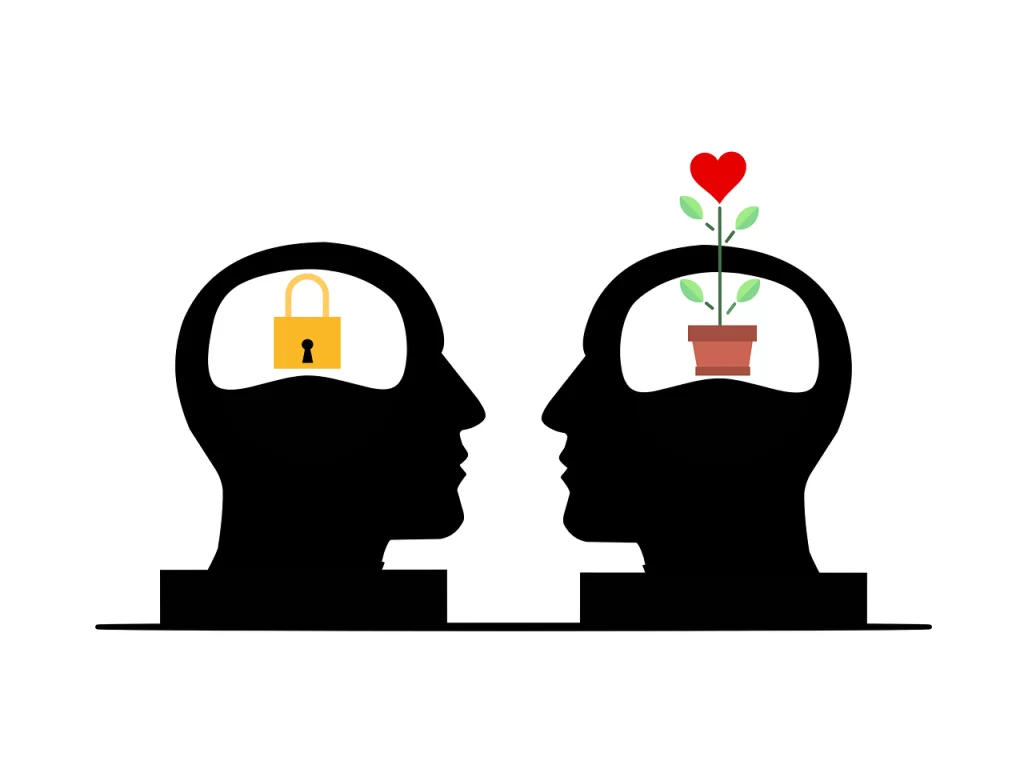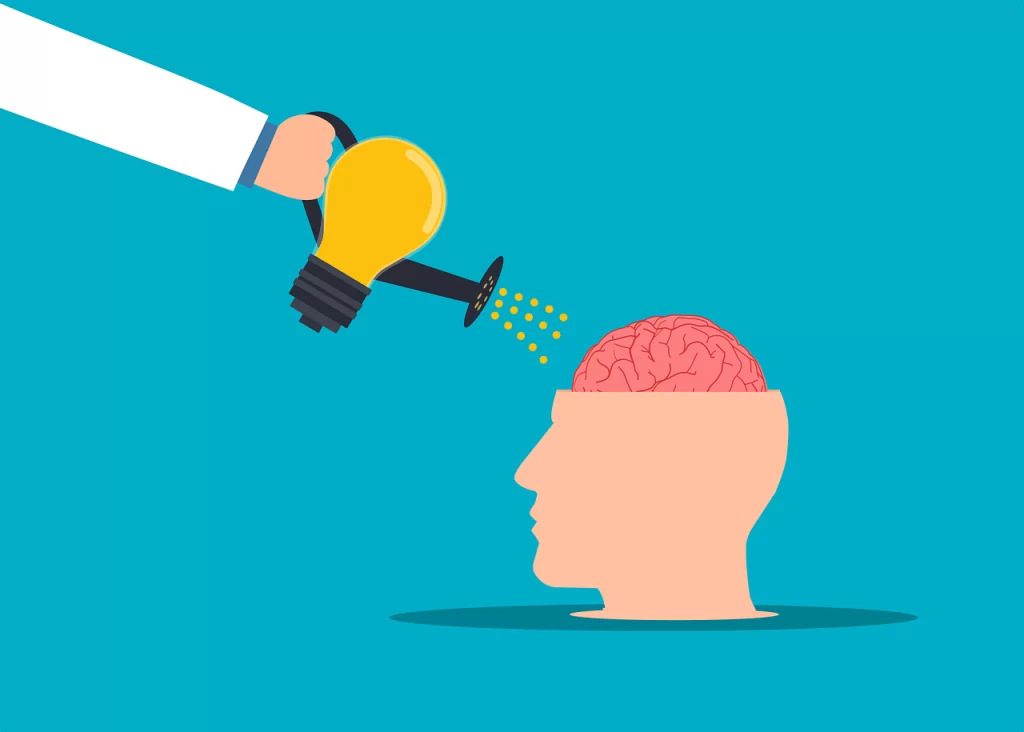What is the difference between a growth mindset and a fixed mindset?
Carol Dweck, an American psychologist who currently teaches at Stanford University, coined the terms ‘growth mindset’ and ‘fixed mindset’ in the late 1980’s. Her theory was partially born out of her observation of her students – while some feared making mistakes and failures, others did not, and the latter group often achieved more and dealt better with new challenges. Dweck is still a leading researcher in the field of mindset and motivation psychology today. To learn more about her research, you can read her 2016 article for Harvard Business Review, “What Having a Growth Mindset Actually Means”.

Having a growth mindset means you believe you can change, and that your traits and abilities (ex: IQ level, general intelligence) are not innate qualities. Instead, they are always in progress, and improvement is possible. Therefore, this mindset reflects the belief that intelligence is reliant on effort and on having a positive outlook while finding innovative solutions.
On the other hand, a fixed mindset is the belief that even if you work hard, you will fail to change the qualities that are part of your personality. For example, if you own a business that is doing well but you believe it is successful because of what you already know, your fixed mentality will prevent the business from developing and growing in innovative ways.
What are the benefits of a growth mindset?
A growth mindset helps with both personal growth and professional growth.
#1 Personal growth

Developing a growth mindset of your own can greatly increase your self-esteem.
Studies have shown that students with strong growth mindsets had steady levels of self-esteem even as their grades fluctuated greatly over time. This was in comparison with students that leaned more into a fixed mindset. This can be explained by the fact that people with growth mindsets do not attach their feelings of self-worth to their academic performance. Instead, they can recognize and appreciate their hard work, and quickly move on after making any mistakes or going through failures.
The welcoming of feedback, or even criticism, is another benefit of this mindset.
Constructive feedback can feel intimidating to some, especially if struggling with a low self-esteem. Once you feel comfortable receiving feedback, your opportunities for growth instantly increase. Of course, having a strong, positive network around you is also advantageous for your personal growth. However, the reframing of constructive criticism or feedback as a new challenge means you view challenges as a way to gain new skills. To develop a growth mindset means you will always be embracing learning and improving, while keeping your focus on small wins.
Improving your self-regulation is another way a growth mindset can improve your personal growth.
Self-regulation pertains to how an individual perceives and controls their feelings, with their long-term goals in mind. As one of the five main components of emotional intelligence (Source: How to Develop and Practice Self-Regulation), it also has a lot to do with being free of a fear of failure. Self-regulating people are able to better manage their stress, leading them to venture out of their comfort zones more often, meaning they can grow and succeed easier and faster. In fact, the ability to self-regulate and having a growth mindset seem to go hand-in-hand.
#2 Professional growth

Embracing a growth mindset can help your career greatly (with more than helping you feel more confident, better equipped at accepting feedback at work, and better at self-regulation). Another benefit to be considered is that you could easily learn new skills!
While those with a fixed mindset stay in their lane in terms of knowledge, soft and technical skills, those that are consistent with staying in a growth mindset often learn new things. As Dweck herself wrote, the people with this mindset instilled in them “worry less about looking smart and they put more energy into learning”. Additionally, the American Society of Administrative Professionals (ASAP) writes, “In a fixed mindset, an individual might be satisfied with their job performance” (Article: Growth Mindset: Is It the Key to Professional Success?). ASAP then mentions that this can hurt the individual’s professional growth, while a growth mindset individual, even if already very successful, always aims to improve their work performance and increase their levels of success. Falling in love with the learning process is thus clearly advantageous in a professional setting.

It is also beneficial to have a growth mindset as it can improve your business culture.
It is general knowledge that you attract friends and colleagues with similar views to yours. Thus, fixed mindsets attract fixed mindsets, and the same goes for growth mindsets. Interestingly, as a person with a growth mindset, you may attract people with differing opinions than yours, since they will not fear having these opinions challenged by you. Building a community of growth mindset individuals who all seek constructive feedback and aim to always develop their skill set is likely to ensure your professional growth.
Moreover, it explains why primarily growth-mindset businesses have been shown to have more support for innovation and teamwork, with employees reporting higher levels of happiness, loyalty, and confidence. Meanwhile, companies that embrace a fixed mindset were reported of having higher amounts of one sole factor: “cheating and deception among employees” (Dweck, 2016).
Consequently, if you are able to incorporate a growth mindset into not just your own life, but your work and your coworkers’ lives, everyone could benefit. A work culture that embraces learning as well as failure is conducive to development.
Conclusion

Whatever your current mindset may be, there is much evidence pointing to the key role of a growth mindset for both personal and professional success.
Carol Dweck says that every person has a mix of fixed and growth mindsets. This means attaining a 100% pure growth mindset is likely impossible, so there will always be room for improvement. If you identify areas of refinement, you do not avoid challenges, and you seek feedback from others, then you are on your way to having a strong mentality geared towards personal and professional development.
Try to not forget that your current abilities do not define your entire personality or self-worth, rather the effort you put in and your confidence to learn a new skill is what can determine the quality of your life. You may struggle, take risks on the wrong ideas or strategies, and face setbacks throughout your life. Yet, as long as you retain your resilience and consistently instill this concept of having a growth mindset, your personal and professional success is sure to improve! After all, life is not about stasis – its only constant is change.






